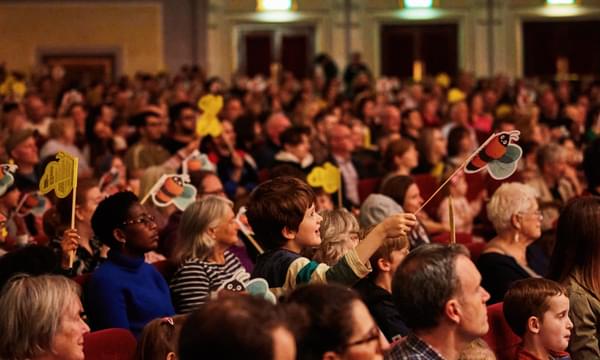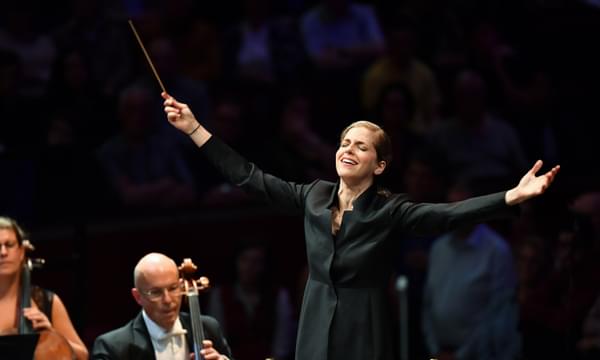
News Story
The year 2022 marks our 75th anniversary and we’re celebrating in true Edinburgh International Festival style, with orchestra residencies, huge symphonies that will shake you to your core and chamber music pieces so exquisite you’ll wonder how you could have not heard about them before.
Whether you’re a lifelong aficionado or just taking your first tentative steps into the world of classical music, we’re here to help you pick out a personalised selection of must-see concerts coming to Edinburgh this summer. Discover a hidden gem of a cantata from a historically underrated composer, or bask in the joyful crescendos of an iconic, instantly recognisable symphony.
Haunting heroines
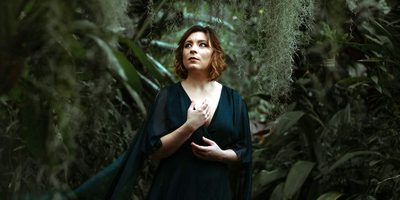
Natalya Romaniw as Rusalka
© Mihaela BodlovicRusalka is a dark fairy tale about a water sprite who falls in love with a human prince and sacrifices everything for him. Think The Little Mermaid, just with a less-than-happy ending and glorious romantic music written by Czech composer Dvořák, perhaps best-known for his Symphony No. 9 “From the New World”. This is a brand new production from the internationally acclaimed Garsington Opera, featuring Welsh soprano Natalya Romaniw in the title role. She’ll be taking on its most famous aria, the gorgeous Song to the Moon.
If you like your tragedy served with a dash of scandal, head to Strauss’ Salome. Swedish soprano Malin Byström has already received sensational reviews playing the headstrong but tortured female lead in Amsterdam and Covent Garden. She’s joined on stage by baritone Johan Reuter as John the Baptist, with the Bergen Philharmonic Orchestra and conductor Ed Gardner in the pit.
South African soprano Golda Schultz also played a tragic heroine beautifully in 2021’s Dido’s Ghost, but this year she’s turning her attention to the women behind the scores. She and her regular pianist partner Jonathan Ware have put together a new recital titled This be her verse, entirely made up of songs by inspirational and often overlooked female composers, from the Romantic era to today.
Sweeping symphonies
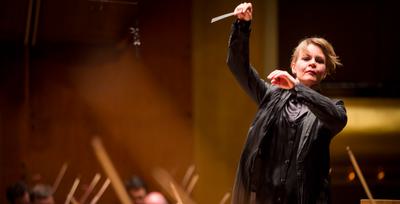
Susanna Mälkki
© Chris LeeWe’re thrilled to be welcoming back full-size orchestras this year, for the first time since 2019.
Get ready for the Usher Hall to be filled with the spectacular sound of the Helsinki Philharmonic Orchestra conducted by Susanna Mälkki, the Royal Scottish National Orchestra under the baton of Elim Chan and pianist sisters Katia and Marielle Labèque performing with the Czech Philharmonic, conducted by Semyon Bychkov.
Our future Festival Director Nicola Benedetti returns to play Bruch’s exquisite Violin Concerto with the Scottish Chamber Orchestra and conductor Maxim Emelyanychev. The Australian World Orchestra, appearing as part of the UK / Australia season, are taking on Dvořák’s Seventh Symphony, which rises from the darkness of its opening to end in blazing light.
Contemporary and rediscovered talents
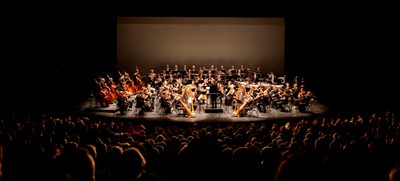
Les Siècles
© Holger TalinskiLes Siècles’ rendition of Lili Boulanger’s Faust et Hélène presents this haunting cantata in all its romantic glory. Premiered in 1913 when Boulanger was just 19, it made her the first woman to win the prestigious Prix de Rome prize in its 200-year history, but tragically she died just five years later. The Philadelphia Orchestra is also shining a light on a composer who deserves wider recognition, performing Florence Price’s First Symphony under the baton of Yannick Nézet-Séguin. When this thrilling, evocative work premiered in 1933, it was the first piece of music by an African American woman to be performed by a major US symphony orchestra.
The Chineke! Chamber Ensemble’s exciting programme includes contemporary works by two Aboriginal Australian composers: the Scottish premiere of Deborah Cheetham’s Ngarrgooroon or ‘Woven Song’, in which enchanting harmonies seamlessly intertwine, and the European premiere of William Barton’s The Rising of Mother Country. A celebrated didgeridoo player, Barton returns to the Edinburgh International Festival for the first time in 10 years to perform alongside the ensemble. Their compatriot Brett Dean will also appear at the Queen’s Hall as both composer and musician, playing viola alongside the Scottish Hebrides Quartet in his own Recollections and Brahms’s exuberant String Sextet No 1.
Familiar favourites
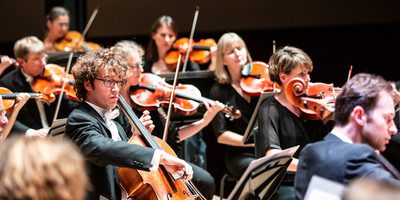
Our Opening Concert starts things off with a bang, featuring Carl Orff's dramatic Carmina Burana in a concert full to the brim with Scottish talent – including the BBC Scottish Symphony Orchestra, conductor Sir Donald Runnicles, the International Festival Chorus and National Youth Choir of Scotland’s Girls Choir. We know you’ll know this piece as soon as you hear the first few notes!
Les Siècles’ programme also includes Igor Stravinsky’s The Rite of Spring played on historically appropriate instruments, although we’re hoping for a more enthusiastic response than the original Rite received when it premiered in Paris in 1913! In his 1936 biography, Stravinsky recalled how what started as “derisive laughter” a few notes into the ballet quickly escalated into a “terrific uproar”. Choreographer Nijinsky ended up standing on a chair shouting numbers to the dancers, who could no longer hear above the chaos, while the Russian impresario Diaghilev kept ordering the electricians to turn the lights on and off, in the hopes that the noise would stop. Experience for yourself the ground-breaking piece that ushered in modern music as we know it.
You’re sure to recognise Gershwin’s Rhapsody in Blue, which will be performed by the Scottish Chamber Orchestra and Wayne Marshall as part of their concert celebrating the composer’s oeuvre. Yannick Nézet-Séguin and the Philadelphia Orchestra’s rendition of Beethoven's Symphony No. 9, the symphony to end all symphonies, will have you humming the final Ode to the Joy long after the concert is finished. Last but not least, we’re bringing everything to a close with Elgar’s The Dream of Gerontius, with Sir Andrew Davis conducting the Royal Scottish National Orchestra, Edinburgh Festival Chorus, National Youth Choir of Scotland and three exceptional soloists.
